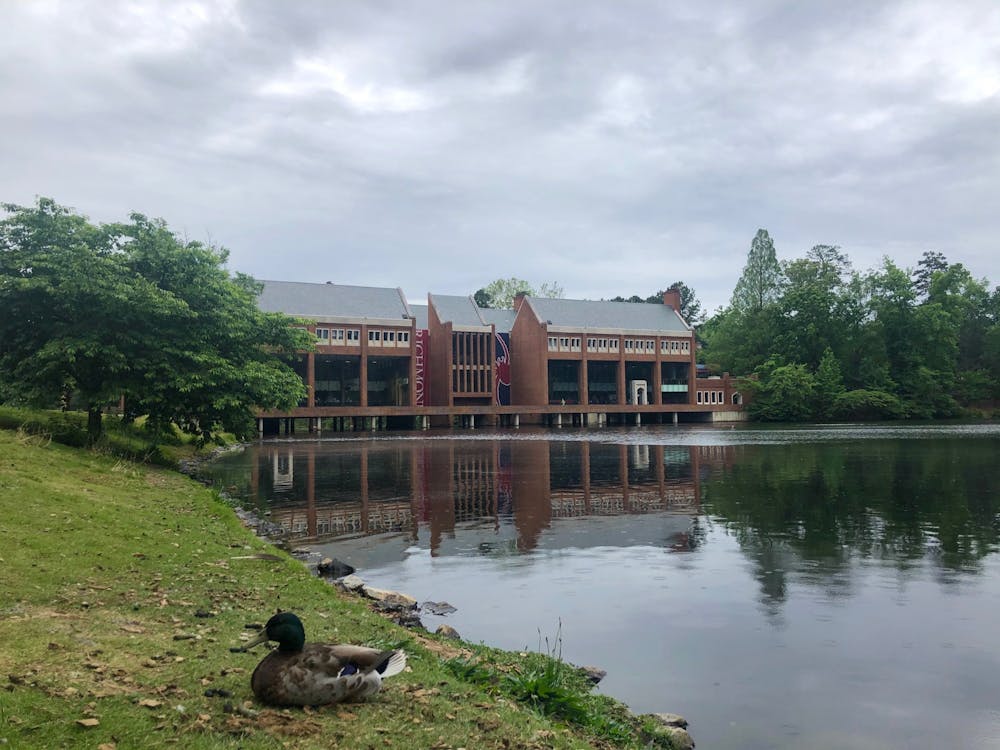The University of Richmond will host community meetings for students, faculty and staff to discuss racism’s effect on campus in response to acts of racism against members of the black community in the U.S.
On May 30, President Ronald Crutcher wrote an email to the UR community regarding the deaths of George Floyd, Breonna Taylor and Ahmaud Arbery.
“This is a systemic problem that reaches every corner of our nation,” Crutcher wrote. “Sadly, even our own community — like so many college campuses — is not immune to acts of hatred, racism, and xenophobia. Just this week, I spoke to a student who was racially profiled while walking on campus. No one should have to experience such hateful behavior on our campus or anywhere else.”
On June 1, the Office of Common Ground hosted a white anti-racism discussion group, which was open to the entire UR community. Crutcher wrote about this discussion in his May 30 email.
The white anti-racist discussion group had already been meeting regularly prior to this week, said Glyn Hughes, director of Common Ground. Given the recent acts of racist violence, UR wanted to share with students in Crutcher’s email the campus resources and virtual events that were already scheduled for the week of June 1, such as the discussion group, he said.
Approximately 120 community members attended the virtual discussion on Monday, Hughes said.
“I think it would have been interesting if we tracked how many people spoke of the 120,” Hughes said. “I know that there were definitely like a handful of repeat speakers, but I think generally that seemed good too.”
Hughes said to participants that they were allowed to solely listen during the discussion and not feel obligated to speak.
“One of the ways that white people can show up to [discussions about race] is with a sense of needing to prove themselves as good white people, Hughes said. "And often that means speaking, filling in the space, being active and talking in a way that lays out your credentials as a good white person, like the stuff that you've done and the black friends that you have. Sometimes that desire to kind of present oneself as a good white person is getting in the way of actually hearing what the conversation is here.”
Lisa Miles, associate director of Common Ground, said that the desire for white people to prove themselves during a discussion may have stemmed from a nervousness of being interpersonally perfect.
“Our white supremacist society is a painful one for people to have to lean into,” Miles said. “I think it's a defense mechanism to try to keep the conversation positive when the potential is there for it to be painful.”
Miles said she was impressed with participants who may have been discussing anti-racism for the first time.
Enjoy what you're reading?
Signup for our newsletter
“There was a sort of genuineness, a vulnerability, an honesty that there was work to do and maybe they didn't know that they needed to be a part of that before,” Miles said. “I thought it was a great starting point for a lot of people.”
Hughes hopes there is a broader interest for more people to get involved in these discussions now that Monday’s event has passed but aims to host multiple smaller-group discussions so that future meetings are not as large as the discussion had been on June 1, he said.
“We're going to figure out a way to sort of spread them out,” Hughes said. “Maybe a couple of options at a time so people can sign up and also probably a couple of different tracks.”
There will be more discussions available to UR students the week on June 1, Crutcher wrote in his May 30 email. Information Services will host an Intersections discussion at 12 p.m. on June 3. The Chaplaincy will host a Sacred Pause for reflection and conversation at 4 p.m. on June 5.
Confidential on-campus resources for counseling are Counseling and Psychological Services and the Office of the Chaplaincy.
Non-confidential resources include the Office of Common Ground and the Westhampton College and Richmond College deans’ offices.
Contact editor-in-chief Olivia Diaz at olivia.diaz@richmond.edu.
Support independent student media
You can make a tax-deductible donation by clicking the button below, which takes you to our secure PayPal account. The page is set up to receive contributions in whatever amount you designate. We look forward to using the money we raise to further our mission of providing honest and accurate information to students, faculty, staff, alumni and others in the general public.
Donate Now


